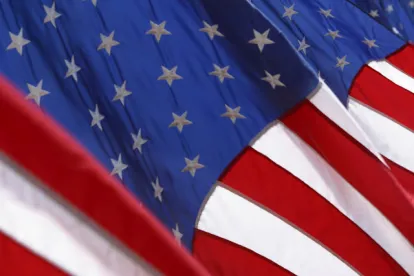It has been almost forty years since Bruce Springsteen first famously celebrated being “Born in the USA.” From an advertising industry perspective, this song’s lasting popularity is no surprise; as advertisers know, “Made in the USA” is often a selling point for American industries.
The FTC knows this too. In late 2021, the FTC finalized a new rule cracking down on deceptive or misleading unqualified U.S. origin claims. The FTC’s new rule, which went into effect on August 13, 2021, does not create new substantive requirements for advertisers, but gives the FTC the ability to impose new, substantial monetary penalties for violating the rule.
Following the enactment of this rule, we have seen a rising number of class actions targeting place of origin claims. This post discusses some such class actions, as well as the FTC’s enforcement of its new rule.
FTC Rule On Unqualified “Made in the USA” Claims
The FTC’s rule prohibits marketers from making unqualified U.S.-origin claims unless:
-
Final assembly or processing of the product occurs in the United States;
-
All significant processing that goes into the product occurs in the United States; and
-
All or virtually all ingredients or components of the product are made and sourced in the United States
This rule differs from the FTC’s prior guidance because:
-
The new rule enables the Commission for the first time to seek civil penalties of up to $43,280 per violation.
-
The new rule includes a full or partial exemption if marketers have evidence showing their unqualified Made in USA claims are not deceptive. This exemption was not part of the previous policy.
-
Unlike the prior guidance, the new rule does not make an exception for foreign ingredients unavailable in the U.S. Under the new rule, an unqualified U.S.-origin claim can be made only where no more than a de minimis amount of the product is of foreign origin – with no special accommodations if an ingredient in the product cannot be found in the U.S.
-
Under the prior guidance, advertisers were given more flexibility for products containing raw materials that are “inherently unavailable in the United States.” In the prior enforcement policy, the FTC advised that unless the nonindigenous imported material constitutes “the whole or essence of the finished product” consumers are likely to understand a “Made in the USA” claim means that “all or virtually all of the product, except for those materials not available here, originated in the U.S.” In the new rule, the FTC stated it sees no support for this exception.
-
-
According to the new rule (and the FTC’s press release announcing it), it applies only to labeling. But the rule also says it encompasses “materials, used in the direct sale or direct offering for sale of any product or service, that are disseminated in print or by electronic means, and that solicit the purchase of such product or service by mail, telephone, electronic mail, or some other method without examining the actual product purchased” that include “a seal, mark, tag, or stamp labeling a product Made in the United States.”
-
It is unclear how broadly the FTC will interpret this definition. That said, Commissioner Christine S. Wilson, who dissented to the rule, expressed concern that this language could be interpreted to cover stylized marks in online advertising or paper catalogs and potentially other advertising marks, such as hashtags, that contain Made in USA claims.
-
Note that qualified U.S.-origin claims are not covered by this new rule, and are still subject to the FTC’s prior guidance.
FTC Enforcement Efforts Following Enactment of Rule
Under the new rule, the FTC has brought claims against:
-
Lithionics Battery LLC, a battery company that labeled its batteries as being “Made in U.S.A.” along with an image of the American flag, often accompanied by the statement “Proudly Designed and Built in USA.” The FTC’s complaint, filed April 12, 2022, alleged the products included imported lithium ion cells and incorporate significant other imported components. The parties settled for a penalty of about $105,000, which was equal to three times Lithionics’ profits attributable to the advertising. The settlement also required Lithionics to refrain from making unqualified “Made in the USA” claims unless it can show that the product’s final assembly or processing – and all significant processing – occurs in the U.S., and that all or virtually all ingredients are made and sourced in the U.S. Under the settlement, the FTC also required Lithionics to notify affected customers, and to submit compliance reports to the FTC for the next ten years.
-
Lions Not Sheep Products, LLC, a clothing company that advertised its clothing and accessories as “Made in U.S.A.,” along with similar claims (including “Made in America,” “100% American Made,” and “Best Damn American Made Gear on the Planet”). The FTC alleged that, in most instances, the products advertised using these statements consisted of wholly imported shirts and hats with limited finishing work performed in the USA. The FTC’s complaint also named Lions Not Sheep’s owner, Sean Whalen as a defendant. The FTC alleged that between May 10, 2021 through October 21, 2021, Whalen and Lions Not Sheep removed tags disclosing accurate foreign country of origin information and printed “Made in USA” at the neck of the shirts. Whalen and Lions Not Sheep have not yet filed a response to the FTC complaint.
Consumer Class Actions
The consumer class action space has seen challenges to similar “Made in USA” claims, including in recent cases against New Balance sneakers (Cristostomo v. New Balance Athletics, Inc., No. 21-cv-12095 (D. Mass. Dec. 20, 2021)), Genfoot America boots (Jackson v. Genfoot America, Inc., No. 22-cv-00036 (D.N.H. Jan. 28, 2022)) and Reynolds’ plastic wrap (Shirley v. Reynolds Consumer Products, No. 22-cv-00278 (N.D. Ill. January 17, 2022)). A recent class action was filed against American Tuna Inc. for its claims that tuna products are “caught and canned” in the United States. Craig v. American Tuna, No. 22-cv-00473 (S.D. Cal. Apr. 8, 2022). Land Air Sea Systems, Inc. is facing a similar lawsuit for marketing its GPS devices as “USA Manufactured.” Pinter v. Land Air Sea Systems, No. 22-cv-00185 (E.D.N.Y. Jan. 12, 2022).
Other Active “Place of Origin” Lawsuits
Place of origin claims, of course, are not limited to “Made in the USA.” Recent cases have challenged advertising claims that products are made in other places, such as:
-
“English” breakfast tea. Mangels v. Twinings, No. 21-cv-04138 (W.D. Mo. Jul. 19, 2021)
-
“Icelandic” yogurt. Steinberg v. Icelandic Provisions, Inc., No. 21-cv-05568 (N.D. Cal. Jan. 25, 2022)
-
“Himalayan” sea salt. Brown v. Morton Salt, Inc., No. 21-cv-06855 (N.D. Cal. Sept. 2, 2021)
-
“Italy’s #1 brand of pasta”. Sinatro v. Barilla America, Inc., No. 22-cv-03460 (N.D. Cal. Jun. 11, 2022)
-
“El Sabor de Mexico! Hardy v. Ole Mexican Foods, Inc., No. 21-cv-01261 (W.D.N.Y. Dec. 3, 2021)
In deciding whether complaints state a plausible claim that reasonable consumers are deceived by such advertising, courts tend to distinguish between claims explicitly touting that a product has been “made in” a certain location versus claims that merely tend to evoke a certain locale. For example, in a recent case involving King’s Hawaiian rolls, the court found that a mere reference to “Hawaii,” even when combined with imagery that evoked references to Hawaii, did not deceive reasonable consumers into thinking that King’s Hawaiian made its rolls in Hawaii. Hodges v. King’s Hawaiian Bakery W. Inc., No. 21-cv-04541-PJH, 2021 U.S. Dist. LEXIS 215707 (N.D. Cal. Nov. 8, 2021). The court in Steinberg v. Icelandic Provisions, Inc., No. 21-cv-05568, 2022 U.S. Dist. LEXIS 13478 (N.D. Cal. Jan. 25, 2022) reached a similar decision, finding that “heirloom Icelandic Skyr cultures” and advertisements created in Iceland did not mislead consumers into thinking the yogurt was made in Iceland, particularly since the product label indicated it was manufactured in New York.
When evaluating product claims for litigation risks, advertisers should keep in mind this distinction between claims that refer to or evoke imagery of a location, and claims that state the product was sourced in a location. We will continue to watch this space for further developments.
Other Developments in U.S.-Origin Labeling
The new FTC rule is not the only significant development surrounding U.S.-origin claims. Immediately following the FTC’s decision to strengthen regulations surrounding these claims, Agriculture Secretary Tom Vilsack released a statement indicating the USDA intends to “complement” the FTC’s efforts by “initiating a top-to-bottom review of the ‘Product of USA’ label” in order to “determine what that label means to consumers.” The review appears to be ongoing. This past February, the USDA announced “a web-based survey/experiment to help gauge consumer awareness and understanding of current ‘Product of USA’ labeling claims on meat (beef and pork) products and consumer willingness to pay (WTP) for meat product labeled as ‘Product of USA’ using the current and potentially revised definitions of the claim.” And more recently, the House and Senate have considered proposed legislation that would limit “Product of USA” labels to beef products that are born, raised, and slaughtered in the United States.
Last year, President Biden issued an executive order directing the federal government to “maximize the use of goods, products, and materials produced in, and services offered in, the United States,” and advising that “[t]he United States Government should, whenever possible, procure goods, products, materials, and services from sources that will help American businesses compete in strategic industries and help America’s workers thrive.” As a result, “Made in the USA” claims may now be more important to marketers than ever. But given the new FTC rule, its potential effects on consumer class actions, and recent developments in legislation and USDA regulation, the consequences of making an unsupported and unqualified “Made in the USA” claim may also be greater than ever.




 />i
/>i

